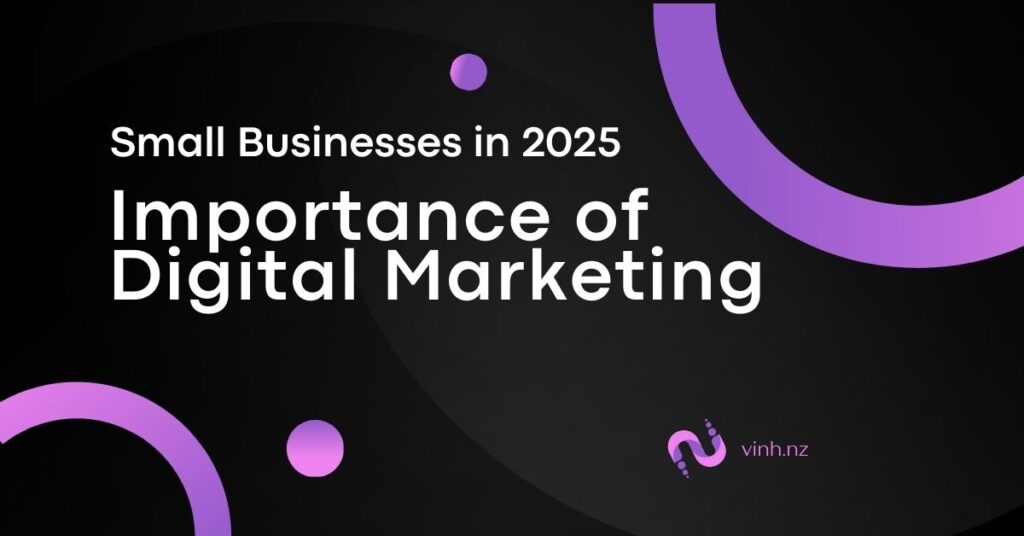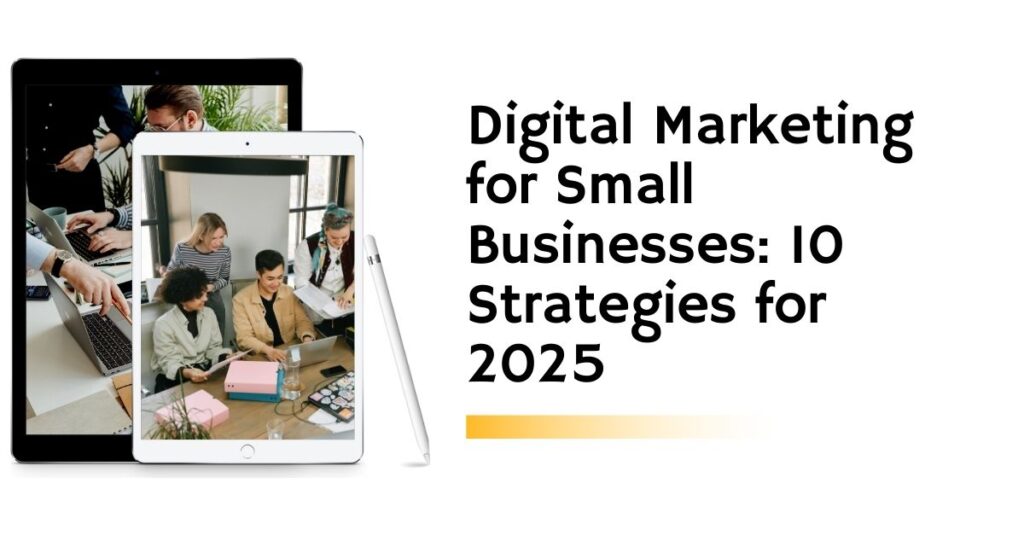Wow, can you believe it? A staggering 71% of small businesses now have websites, up from just 50% five years ago (Forbes)! If you’re a small business owner looking to join the ranks but feel overwhelmed, don’t worry—you’re not alone. Building a website doesn’t have to be intimidating, especially with so many beginner-friendly tools available today. Whether you’re starting from scratch or need to refresh an old site, finding the best website design software is key to making the process smooth and hassle-free.

In this guide, we’ll walk you through the 10 best website design software options for beginners in 2025. From simple drag-and-drop builders to more powerful content management systems (CMS), there’s a tool out there for everyone. Let’s dive in and find the one that works best for you!
Understanding Website Design Software: What to Look For
Before we jump into the list, let’s first understand what website design software is. Simply put, it’s a tool that allows you to create and design a website without having to write code. These platforms are built with beginners in mind, offering user-friendly features so you can create a professional-looking site with minimal effort.

Here are some key features you should look for as a beginner:
- Drag-and-drop interface: This lets you visually build your site by dragging elements (like text boxes, images, or buttons) exactly where you want them on the page. I use this tool to make this website.
- Pre-made templates: These are ready-made designs that you can easily customize to fit your brand, saving you time and effort.
- Customization options: Even with a template, you’ll want the ability to change things like colors, fonts, and images to make your site feel unique.
- Ease of use: Look for platforms with intuitive, easy-to-understand interfaces, especially if you’re new to design and tech.
These features make it easier for anyone to create a website without a big learning curve. And as your business grows, you’ll want to choose software that can scale with you, offering features like e-commerce platforms, SEO tools, and more.
Top 10 Best Website Design Software for Beginners in 2025
Here’s a list of the best website design software options that cater to beginners. Whether you’re building a blog, portfolio, or online store, one of these will meet your needs.
Wix: The All-in-One Website Builder
Wix is one of the easiest website builders available, offering a simple drag-and-drop interface that’s perfect for beginners. It has hundreds of templates and a range of customization options to make your site truly unique.

- Pros: Very beginner-friendly, no coding required, wide range of templates.
- Cons: Limited flexibility once you’ve chosen a template.
- Pricing: Free plan available, paid plans starting at US$14/month.
Wix includes a free .com domain for the first year, but it doesn’t offer .co.nz domains. You’ll need to factor in the additional cost of purchasing one elsewhere
WordPress: The Versatile Content Management System
WordPress offers more flexibility than many drag-and-drop builders, making it great for those who want to grow their website over time. There’s a steeper learning curve, but it’s worth it if you want more control.

- Pros: Highly customizable, great for blogs and businesses.
- Cons: Requires some setup and learning.
- Pricing: Free to use with paid hosting; paid plans start at NZ$5/month (WordPress.com).
Squarespace: The Design-Focused Platform
Squarespace is known for its beautiful, sleek templates, making it ideal for creative projects like portfolios or photography sites. It’s also good for businesses with e-commerce needs.

- Pros: Stunning templates, e-commerce features.
- Cons: Fewer customization options compared to WordPress.
- Pricing: Starts at US$16/month.
Weebly: The Straightforward Site Builder
Weebly is another drag-and-drop builder that’s incredibly easy to use. It’s great for small businesses, especially if you’re looking to integrate e-commerce features quickly.

- Pros: Easy to use, built-in e-commerce.
- Cons: Limited design flexibility.
- Pricing: Free plan available, paid plans starting at $6/month.
Shopify: The E-Commerce Powerhouse
If you’re focused on selling products online, Shopify is the go-to platform. It’s built for e-commerce, making it easy to set up an online store, manage inventory, and accept payments.

- Pros: Built specifically for e-commerce, lots of features for selling online.
- Cons: Limited design flexibility outside of the store features.
- Pricing: Plans start at $29/month.
Webflow: The Designer’s Dream
Webflow combines the power of a professional design tool with a user-friendly interface. It allows for much more customization, making it ideal for those who want to get creative with their website.

- Pros: Advanced design capabilities, no coding needed.
- Cons: Steeper learning curve for beginners.
- Pricing: Free plan available, paid plans start at $12/month.
GoDaddy Website Builder: The Quick and Easy Option
GoDaddy’s Website Builder is perfect for those who want to get a website up and running fast. It’s simple and offers just enough customization for basic needs.

- Pros: Quick setup, very user-friendly.
- Cons: Limited design options.
- Pricing: Free plan available, paid plans start at $9.99/month.
Zyro: The AI-Powered Newcomer
Zyro uses artificial intelligence (AI) to help design your website, making it an ideal tool for beginners who want an easy and fast setup.

- Pros: AI-powered tools, affordable pricing.
- Cons: Fewer features compared to larger platforms.
- Pricing: Paid plans start at $2.90/month.
Elementor: The WordPress Page Builder
If you like WordPress but want an easier way to design pages, Elementor is a great plugin that offers drag-and-drop page building, making the design process much simpler.

- Pros: Easy to use with WordPress, drag-and-drop features.
- Cons: Limited to WordPress sites.
- Pricing: Free with limited features, paid plans start at $49/year.
Jimdo: The Automated Website Creator
Jimdo is another AI-powered platform that helps you build a website quickly. It’s a great choice for those with minimal design experience who want a simple, no-fuss solution.

- Pros: AI-driven, very fast to set up.
- Cons: Less customization available.
- Pricing: Free plan available, paid plans start at $9/month.
Comparing the Top Website Design Software: Which One’s Right for You?

When choosing the best website builder, here’s what to keep in mind:
- Ease of Use: Wix, Weebly, and GoDaddy are great for beginners with no technical experience.
- Templates: Squarespace and Wix have the most beautiful, customizable templates.
- E-Commerce: If you’re setting up an online store, consider Shopify or Weebly for their built-in e-commerce tools.
- Pricing: Zyro and WordPress (with affordable hosting) offer the most budget-friendly options.
Tips for Getting Started with Your Chosen Website Design Software

Here are a few tips to help you hit the ground running:
- Set clear goals: Know what you want your website to achieve, whether it’s to showcase your products, start a blog, or build an online store.
- Use templates: Don’t reinvent the wheel—templates make your life easier!
- Customize your site: Change colors, fonts, and images to fit your brand.
- Focus on user experience (UX): Ensure your site is easy to navigate and looks good on mobile.
Future Trends in Website Design Software for Beginners in 2025
Looking ahead, here’s what to expect in web design:
- AI-powered design: Tools like Zyro and Jimdo are paving the way for AI to simplify website creation.
- Mobile-first design: More users are browsing on mobile devices, so make sure your site is responsive.
- Accessibility: Expect more focus on making websites usable for everyone, including people with disabilities.
Conclusion
Building a website doesn’t have to be hard, and with the right tools, you can have your dream site up and running in no time. Whether you choose the simplicity of Wix or the e-commerce power of Shopify, there’s a platform out there that fits your needs. So, what are you waiting for? Pick your favorite tool and start creating your website today—your future customers are waiting!
For a comprehensive guide on how to effectively market your small business online, check out the article Digital Marketing for Small Businesses: 10 Strategies for 2025
Happy designing, and may your website dreams come true!
FAQs
What is the best website design software?
The best website design software depends on your specific needs, skills, and project requirements. Some popular options include: WordPress, Wix, Webflow
Do I need coding knowledge to use website design software?
Many modern website design tools, such as Wix and WordPress, offer drag-and-drop interfaces that allow you to create websites without any coding knowledge
What features should I look for in website design software?
Key features to consider include collaboration features, a user-friendly interface, responsive design capabilities, a template library, customization options, e-commerce functionality (if needed), SEO tools, and integration with other platforms.
Is there free website design software available?
Yes, there are free options available. Some popular free website design tools include: Wix (with limited features), WordPress (self-hosted version)
How do I choose the right website design software for my project?
Consider the following factors: your skill level (beginner, intermediate, or advanced), project requirements (e-commerce, blog, portfolio, etc.), budget, desired level of customization, need for collaboration features, and long-term maintenance and scalability.
Is it possible to create a responsive website using design software?
Yes, most modern website design software includes responsive design features.




Pingback: Small Business Website Design: A Comprehensive Guide in 2025